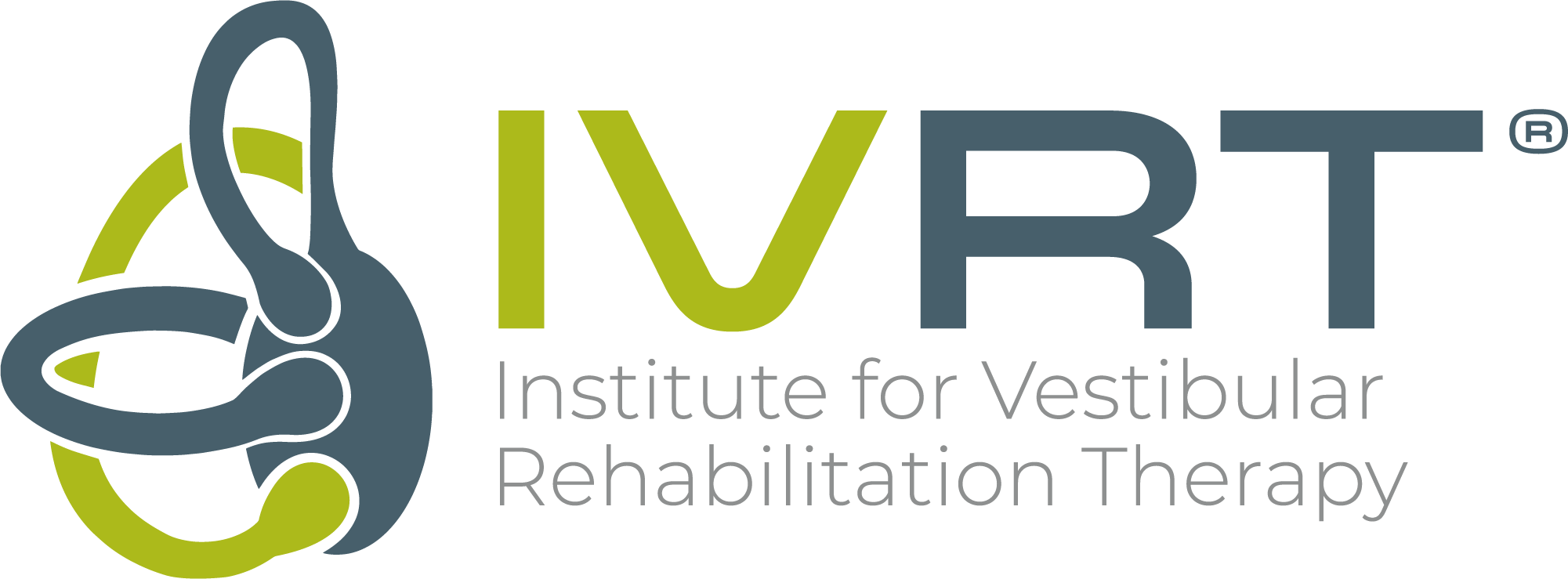Why pursue training to become a vestibular rehabilitation specialist?
Vestibular rehabilitation is an evidence-based and highly effective therapy treatment for dizziness. All studies and several systematic reviews, including one by Cochrane, have already demonstrated the high effectiveness of this therapy.
Although the therapy is evidence-based and effective, there are unfortunately few therapists who specialize in the therapy. Accordingly, affected individuals search in vain for therapists and are treated incorrectly or not at all!
In the same way, ENT physicians and neurologists depend on the support of specialized therapists to help them treat this group of patients!
Not only will patients and physicians benefit from specialized therapists, but you will also stand out from your peers with your newly learned knowledge and skills. Because every practice and every hospital need an expert for dizziness!
You will also distinguish yourself as a self-employed person with your own practice by establishing new collaborations with ENT physicians and neurologists. You will convince your patients and the physicians of your new competencies.
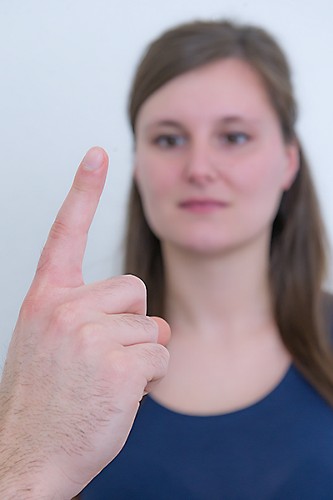
Why further postgraduate education and trainig at IVRT?
The contents of our training are based on the latest scientifically founded knowledgeWe follow international guidelines ("International guidelines for education in vestibular rehabilitation therapy" of the Barany Society and "Vestibular hypofunction clincal practice guideline" of the Academy of Neurological Physical Therapy) and the textbook "Vestibular Rehabilitation" by Prof. Herdman, probably the most renowned expert in the field of vestibular rehabilitation.
The content of the IVRT training to become a vestibular rehabilitation specialist was reviewed by Dr. Heusel-Gillig (the current physiotherapy director of the Emory Clinic's Center for Dizziness) and by esteemed German expert Dr. von Brevern and was found to be very good by both experts.
Pedagogy & Didactics: After each semester, our team of instructors evaluates how we can teach you the content even more effectively. Intern trainings as well as modules at universities support us in this task. In addition, we emphasize multimedia learning, which brings more variety and is more fun. Finally, lecturers with practical experience are a high priority for us: what we teach you, we use ourselves every day in our practices!
The IVRT vestibular rehabilitation specialist course course is 4 days long, while other providers try to entice you with shorter seminars. But it's very important to us that we don't just cover the surface of the subject, but really get into the details and make you an expert!
Out of sight, but not out of mind! Especially after the course you will need us for questions and difficult cases. Our team of instructors will of course continue to support you after the training!
You need aids so that your patients can perform the exercises at home? You want to advertise your practice to physicians in your area? No problem, we provide you with exercise brochures for your patients and flyers for marketing, which you can order exclusively and conveniently via our online store.
After the IVRT training to become a vestibular rehabilitation specialist the learning really begins. Because learning means gaining experience and for that you need patients! Our therapist list, which already includes more than 1,500 addresses in Germany, Austria, Switzerland, Belgium, the Netherlands and Luxembourg and is already being called up more than 1,000 times a month, is not only recommended in our YouTube videos, but also at congresses and in physicians' reports. After the training, you will also be part of the IVRT community and will be included in our therapist list !
EXCLUSIVE: As a graduate of the IVRT vestibular rehabilitation specialist course you will have access to the password-protected, intern area, where all assessments and test forms are available for download, as well as examinations and exercises that can be played as videos. Our highest goal is that you do not forget the practical content of the training and that you can recall it again and again!
IVRT-training to become a vestibular rehabilitation specialist
The Institute for Vestibular Rehabilitation Therapy was founded with the aim to better train therapists in the field of vestibular disorders and, consequently, to create a network of experts for the affected people and physicians.
The training consists of a two-day basic course (Module I) and a two-day advanced course (Module II). Module I is the prerequisite for Module II. Only the IVRT basic course is recognized, as course content varies greatly from instructor to instructor.
To be included in the IVRT's therapist list, successful participation in the exam, which takes place during Module II, is a prerequisite. Only in this way can we promise patients and physicians competent therapists. It is possible to participate in Module II without taking the exam, but in this case the participants cannot be included in the therapist list and do not receive the vestibular rehabilitation specialist certificate. In this case, participants will receive only the certificate of participation.
To ensure that the knowledge and skills of our IVRT certified therapists are always up-to-date, enrollment in the therapist list is limited to three years. After the three years, therapists may renew their registration in the therapist list for an additional four years by participating in a one-day refresher course.
Module I
Vestibular rehabilitation specialist training: Module I
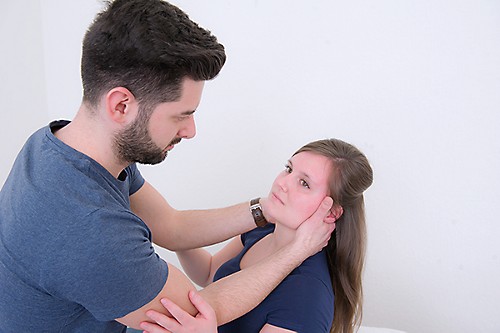
A disorder of the vestibular organ is by far the most common cause of dizziness. Evaluations of several clinics show that a vestibular disorder causes the main symptom " dizziness" in 50% of the cases. Vestibular dizziness has an annual prevalence of 5% among adults in Germany, making it very common. However, most cases are not properly diagnosed or treated. This is clearly illustrated by the example of benign paroxysmal positional vertigo: only 8% of patients receive the correct treatment. Even during therapeutic education, hardly anything is taught about the treatment of the vestibular system. Therefore, one quickly concludes: It is about time to educate yourself in this field! This is especially true since vestibular rehabilitation therapy can treat dizziness very effectively.
The symptom " dizziness" should also not be labeled as a geriatric syndrome. All age groups are affected by vestibular dizziness and the contents of the training are an important addition to the therapeutic repertoire for all colleagues. For example, athletes often suffer from vestibular symptoms after a head injury. Also, colleagues who are specialized in the cervical spine or the temporomandibular joint, and therefore often encounter the symptom " dizziness ", the differentiation of dizziness is extremely essential. Furthermore, it is obvious that the specific therapy of the vestibular organ also plays a very important role in the field of fall prevention. In short: The training to become a vestibular therapist is a continuing education that is rewarding for everyone and that benefits everyone!
Course content
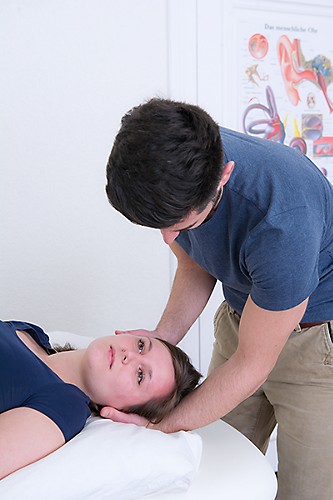
Theory
- Relevant anatomy and physiology
- Pathology: acoustic neuroma, vestibular neuritis / neuropathia, ototoxicity, Meniere's disease, presbyvestibulopathy and benign paroxysmal positional vertigo
- Know, understand, and interpret laboratory testing of the vestibular system
Practice
- Examination of the vestibular system: test battery of diagnostics tests with high reliability to detect vestibular weakness/disorder
- Exercises in vestibular rehabilitation therapy: the evidence-based and effective therapy to treat vestibular dizziness
- Diagnosis and treatment of benign paroxysmal positional vertigo: reliable positional testing and evidence-based canalith repositioning maneuvers
- Evaluation: dizziness handicap inventory, activities-specific balance confidence scale, and functional gait assessment
- Critical evaluation of the evidence on cervicogenic dizziness and treatment recommendations
Module II
Vestibular rehabilitation specialist training: Module II
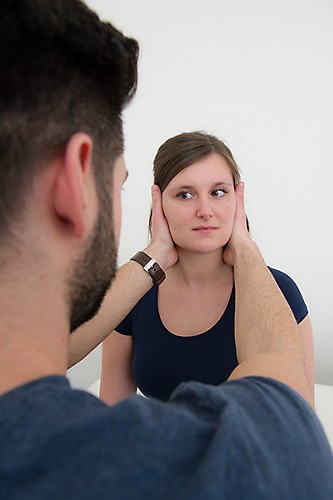
By attending Module II, you will become a certified "vestibular rehabilitation specialist" and be able to profile yourself in an interdisciplinary context. In addition to an in-depth knowledge of vestibular causes, knowledge of non-vestibular causes is also important. Therefore, the 'diagnostic part ' focuses on non-vestibular causes. Moreover, therapeutic approaches for the treatment of non-vestibular causes, such as orthostatic dizziness, are presented.
The 'treatment part' of the course focuses on complex vestibular disorders such as vestibular migraine, post-traumatic dizziness, and somatoform or functional dizziness (recently called PPPD). In addition, questions are clarified such as: My patient only has dizziness when lying down, but the tests for BPPV were negative, what else could she have? Or: In the anamnesis everything points to a vestibular cause, but my tests are all negative. Is this somatoform dizziness and how can I treat it?
Even if Module I is sufficient for the treatment of simple cases, Module II is necessary to deal with more complex cases. The "demonstration patient" in Module II, who is examined and treated collectively, also provides an opportunity to expand knowledge.
With the knowledge test in Module II, you can become a certified "vestibular rehabilitation specialist". If you successfully complete the test, you will be listed in IVRT's therapist registry. The knowledge test is only required for the certificate and the therapist list, which means that you can also participate in the course without taking an exam.
Course Content:
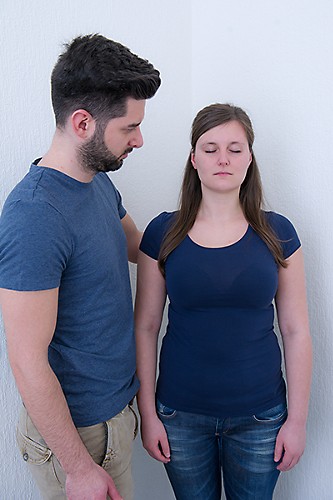
Theory
- Pathology of non-vestibular causes: Drug side effects, cardiovascular causes, and metabolic/internal causes
- Pathology: vestibular migraine, post-traumatic dizziness and somatoform/functional dizziness (PPPD)
Practice
- Therapeutic assessment and treatment of non-vestibular disorders
- Additional tests/assessments for, among others, visual vertigo
- Vestibular rehabilitation for vestibular migraine and functional dizziness (PPPD)
- Collective assessment and treatment of a "demo patient"
Exam
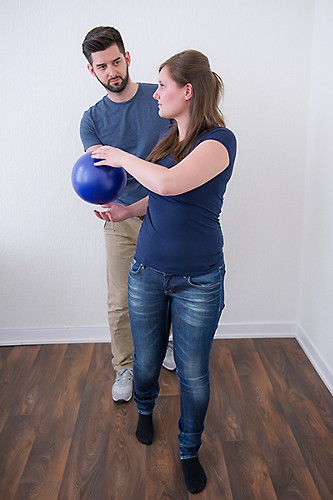
- To guarantee the knowledge and competencies of our IVRT certified therapists and to promise competent therapists to physicians and patients, we consider an examination necessary.
- The training, the course manuscript and the instructors prepare you optimally for the exam and consequently, with active and committed participation, a high pass rate can be expected. The exam consists of a written and a practical exam.
- The written knowledge test consists of 20 multiple-choice questions. In the practical part, the participant is asked to demonstrate a practical skill. Download the pdf file with the practice questions to get a better idea of the exam. The file contains sample questions for the written and practical exam.
- In summary, we can promise affected individuals and physicians that our participants have completed a demanding postgraduate education course of 38 units of lecture and training and have successfully passed a written and practical exam.
- If you have any questions about the exam, you can always contact the IVRT.
